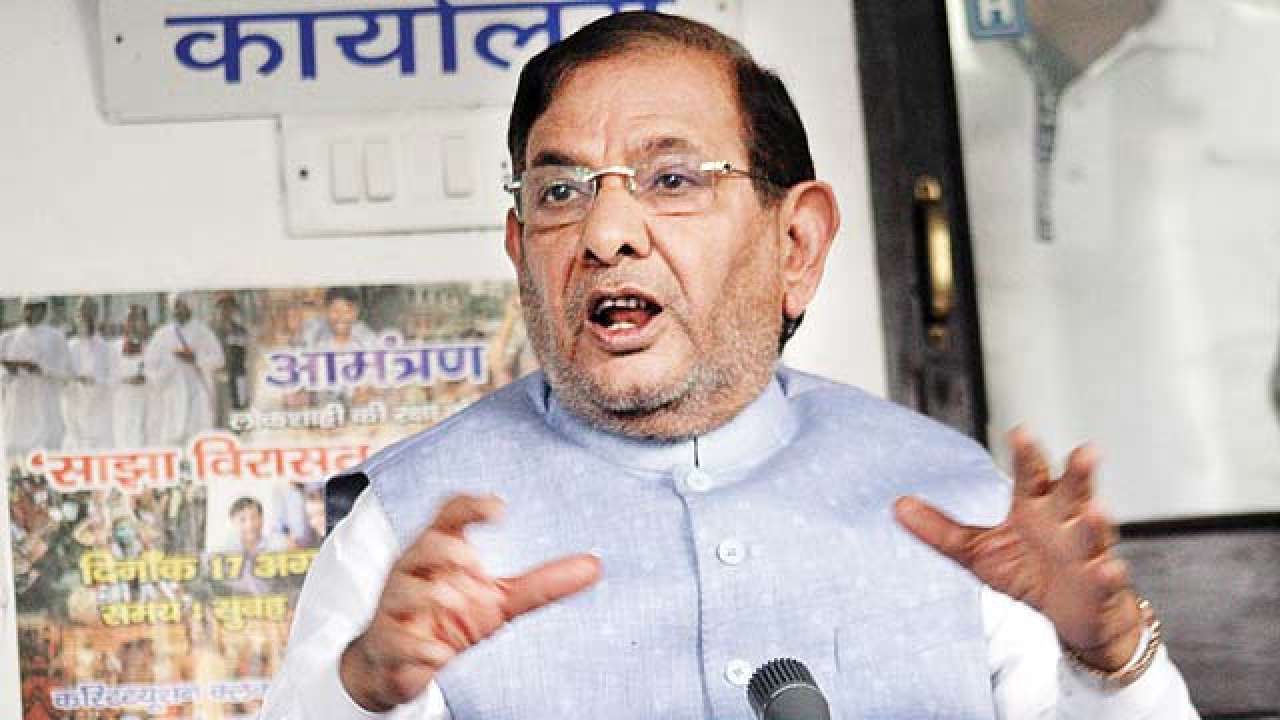
Vice President M Venkaiah Naidu in an order dated December 4, 2017 has disqualified Janata Dal (U) MPs Sharad Yadav and Ali Anwar from the Rajya Sabha. In his order, Naidu has made certain comments that force not just the current members of Parliament but also the enlightened citizenry to reflect on the woeful self-regulation that betides the Parliament.
The disqualification of Yadav and Anwar is an outcome of a petition filed by a senior JD (U) leader RCP Singh. He had called on the Chairman of the Rajya Sabha to disqualify the duo as they had indulged in anti-party activities by publicly denouncing the decision of the Nitish Kumar-led government to withdraw from the Mahagathbandhan alliance. Political experts and enthusiasts who hold an interest in Bihar politics would testify that in 2015, the Mahagathbandhan alliance was forged more out of political expediency than ideological compatibility.
Two political stalwarts of Bihar politics — who were famously and staunchly opposed to each other — put their political animosity aside and reluctantly embraced an alliance just to stem the overwhelming rise of BJP across the Indian landscape. This alliance of convenience soon ran into rough waters as the Bihar CM Nitish — one of the few leaders who has an unblemished track record — could not make peace with the law enforcement’s probe of graft charges levelled against RJD supremo’s Lalu Prasad Yadav and his family.
Then, in July, Nitish, in an orchestrated political manouever, delivered the coup de grace to a tottering relationship and joined hands with the BJP. It is only now, more than three months after Singh’s petition was accepted, that Yadav has been disqualified.
Such delay is unpardonable and effectively subverts the democratic process. As Naidu puts it, petitions seeking disqualifications, which “go to the root of the functioning of democracy” should not be kept pending or dragged on by the presiding officer, in order to “save the membership of the persons...or to save the government, which enjoys majority only because of such types of persons”.
Naidu also explained that he had not referred the petition to the committee of privileges because procedural requirements as laid out by the committee consumed a lot of time when it comes to conducting a preliminary inquiry and the submission of a final report.
This delay, he said, tantamounts to a subversion of the anti-defection law. It is here that Naidu is treading in tricky territory. While Naidu’s intention to expedite the processing of the petition is welcome, cutting short the established protocol cannot be welcomed. If the existing procedure before the committee of privileges is protracted and time-consuming, then ways must be discovered to expedite the process and orders must be delivered in the shortest possible time, as the Chairman of the Rajya Sabha, Naidu, more likely than not, will be saddled with many other pressing responsibilities which will command a lion’s share of his timetable.